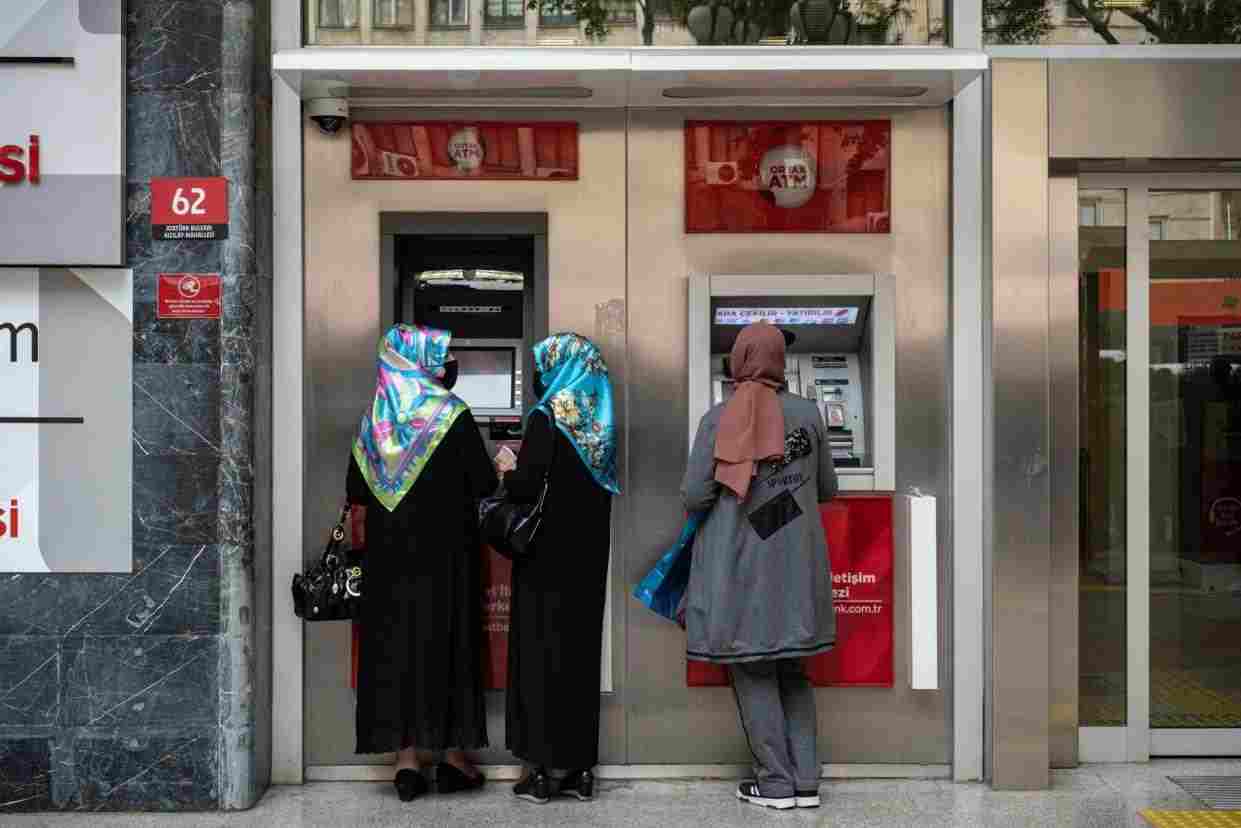Turkey Sets Target for Lenders to Reduce FX-Linked Deposits

Image: Collected
Turkey took the first step away from a tool introduced to arrest currency depreciation, as the central bank set a target for banks to reduce their share of such deposits.
Lenders whose clients do not convert a certain ratio of their FX-linked deposits to regular lira deposit accounts will have to purchase additional government bonds, according to a decree published in the official gazette on Sunday. Deposits in these FX-linked accounts are guaranteed a return equal to the rate of the lira’s weakening, or a pre-set regular interest in case the currency remains steady.
Introduced to arrest a rapid currency depreciation in the final month of 2021, they now total at about 3.4 trillion liras ($125 billion), more than 28% of all deposits. In a statement, the central bank said it aims to decrease FX-linked deposits, thus “contributing to the strengthening of macrofinancial stability.” It pledged to continue rolling out similar steps.
The central bank also raised the reserve requirement ratios for foreign currency deposits, which will force lenders to park more foreign currency at the regulator, according to a separate decree. The reserve ratio for FX accounts with maturities of up to a month was raised to 29% from 25%, while the ratio for accounts with maturities of as long as a year was set at 25%.
Meanwhile, a rule that imposed higher ratios for lenders whose lira deposits were lower than a set rate has been removed.
Turkish President Recep Tayyip Erdogan pivoted from his unorthodox views on inflation and interest rates after winning a crucial election in May, appointing former Merrill Lynch strategist Mehmet Simsek as finance minister and Hafize Gaye Erkan, a former First Republic Bank co-head, as central bank governor. The central bank in June raised interest rates for the first time in over two years.
Lenders whose clients do not convert a certain ratio of their FX-linked deposits to regular lira deposit accounts will have to purchase additional government bonds, according to a decree published in the official gazette on Sunday. Deposits in these FX-linked accounts are guaranteed a return equal to the rate of the lira’s weakening, or a pre-set regular interest in case the currency remains steady.
Introduced to arrest a rapid currency depreciation in the final month of 2021, they now total at about 3.4 trillion liras ($125 billion), more than 28% of all deposits. In a statement, the central bank said it aims to decrease FX-linked deposits, thus “contributing to the strengthening of macrofinancial stability.” It pledged to continue rolling out similar steps.
The central bank also raised the reserve requirement ratios for foreign currency deposits, which will force lenders to park more foreign currency at the regulator, according to a separate decree. The reserve ratio for FX accounts with maturities of up to a month was raised to 29% from 25%, while the ratio for accounts with maturities of as long as a year was set at 25%.
Meanwhile, a rule that imposed higher ratios for lenders whose lira deposits were lower than a set rate has been removed.
Turkish President Recep Tayyip Erdogan pivoted from his unorthodox views on inflation and interest rates after winning a crucial election in May, appointing former Merrill Lynch strategist Mehmet Simsek as finance minister and Hafize Gaye Erkan, a former First Republic Bank co-head, as central bank governor. The central bank in June raised interest rates for the first time in over two years.
Source: https://news.yahoo.com
Previous Story
- Turkey and Thailand among most popular travel destinations
- Eid 2023: Turkey and Thailand among most popular...
- Saudi Arabia deposits $5bn in Turkey's central bank
- Turkey inflation slows the most since 1995 ahead...
- Turkey boosts greenhouse gas emission reduction target for...
- Turkey's inflation probably hit 84% in September on...
- From plane wreck to dive site: five sunken...
- Turkey's inflation set to hit new 20-year high,...